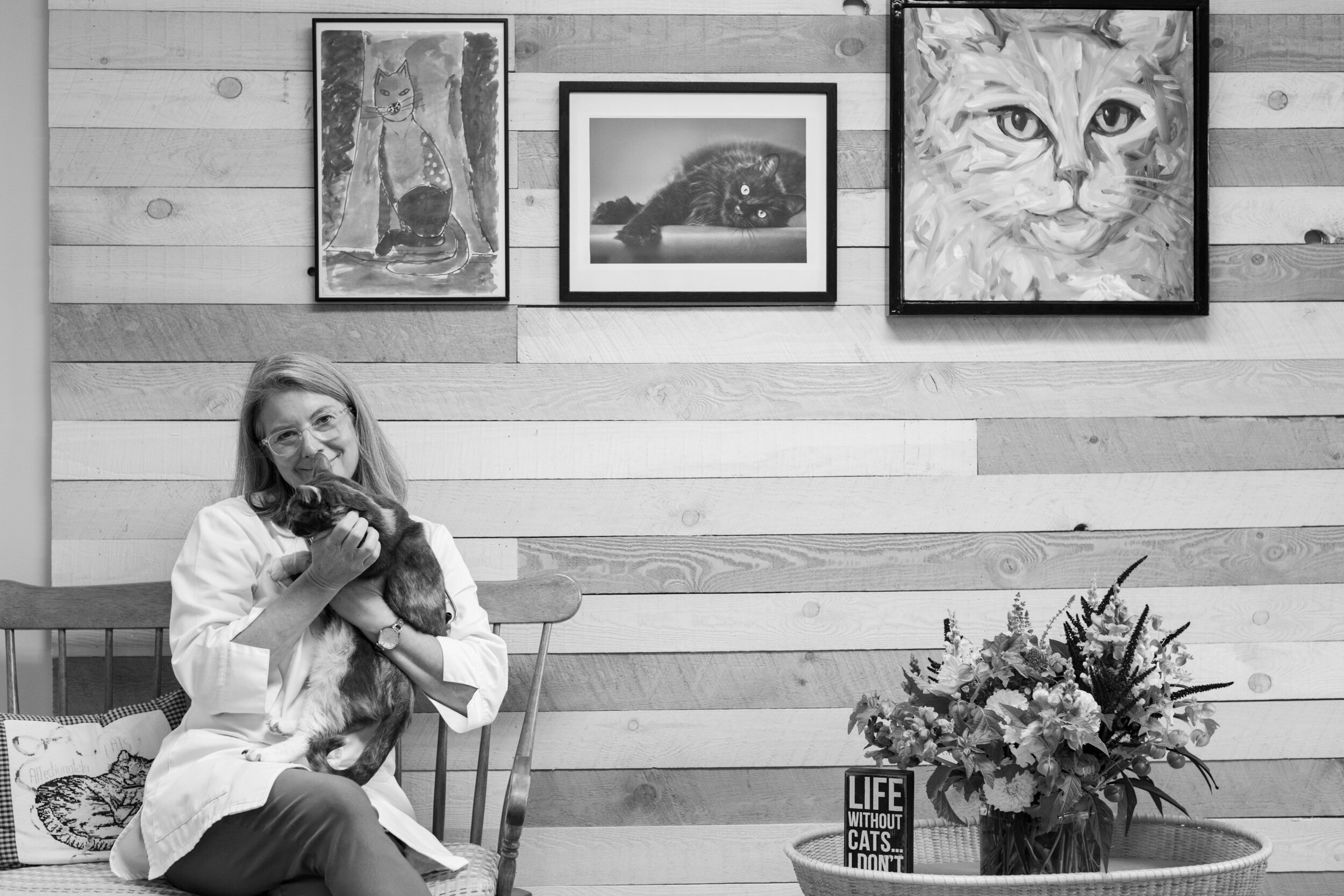
Frequently Asked Questions
Dental Cleaning/Oral Surgery
What should I expect at a dental cleaning?
Your cat will be admitted first thing the morning of the procedure. One of our doctors will give your cat an examination and perform pre-anesthetic blood tests. We will keep your cat under close observation during recovery and call you when the procedure is finished to schedule a discharge appointment (usually around 4-5 pm).
If oral surgery is needed, we will send home pain medication to keep your cat comfortable while healing. Any infection will be treated with antibiotics. We will discuss at-home care with you at the discharge appointment.
My cat doesn’t seem like themselves after their dental cleaning. Is everything okay?
Your cat may be a little tired or disoriented the night after a dental cleaning, but most cats are back to their normal selves within 6-12 hours. Call us if your cat is not eating or behaving normally after 24 hours.
Surgery
Is the anesthesia safe?
Modern anesthesia is very safe: less than 1% of cats die under anesthesia. Procedures such as spays, neuters, dental cleanings, and other routine surgeries pose very little risk to your cat. Additionally, we use the safest and most advanced anesthetic protocols available to further reduce the risks associated with anesthesia.
Will my cat receive intravenous fluids while under anesthesia?
Other than brief procedures, every cat receives intravenous (IV) fluids during the entirety of the procedure. This helps maintain your cat’s blood pressure during surgery. Additionally, the intravenous catheter gives us the ability to administer fast-acting medication if your cat has an adverse reaction to anesthesia.
What monitoring techniques do you use?
A trained, dedicated veterinary technician constantly monitors every patient under anesthesia. Your cat’s blood pressure, body temperature, heart rate, respiratory rate, and blood oxygen levels are carefully monitored during procedures.
Is pre-anesthetic blood work run?
Before undergoing anesthesia, every cat receives basic pre-anesthetic blood work to ensure their body will be able to properly handle and process anesthesia. Older cats, or those with known medical problems, may require more extensive pre-anesthetic blood work before undergoing an anesthetic procedure.
COVID-19
My cat has an appointment or boarding check-in scheduled, but I am recovering from an illness or caring for someone with respiratory symptoms. What should I do?
If you are in quarantine, or if anyone in your household is sick with a fever and/or respiratory symptoms (cough, difficulty breathing) and your pet needs care; you must call ahead. We will help you determine whether a virtual/phone visit might be appropriate. If your pet needs to be seen immediately, we ask that someone else who is symptom-free and not quarantined bring your pet to Affectionately Cats on your behalf.
What should I do if I need to pick up food, medication, or other supplies from Affectionately Cats?
You are welcome to come inside to pick up medication refills or other items. If you would prefer contactless curbside service, please call or email ahead to request what you need. You can pay by phone. Once you arrive at Affectionately Cats, please call (802) 860-2287 and we will have a team member deliver the supplies to the basket outside our door.
Where can I go to learn more about COVID-19?
For the latest information on COVID-19 in Vermont, dial 211 or visit healthvermont.gov.
The American Veterinary Medical Association has compiled a useful resource on COVID-19 for pet owners which can be found on their website.
What is the process for a virtual phone visit?
In some cases, a phone consult visit with one of our veterinarians may be appropriate. Prior to the appointment, you will complete a history questionnaire via phone or email, and will have the opportunity to attach relevant photos/videos so your veterinarian can review these prior to your scheduled appointment. Please call if you are interested in scheduling a virtual/phone visit.
Only certain conditions can be addressed virtually; for others, a physical examination and/or lab testing may be required. Please note that telemedicine guidelines do not permit diagnosis or treatment via virtual/phone consultations if your cat has not had a physical exam with one of our doctors in the past year.
